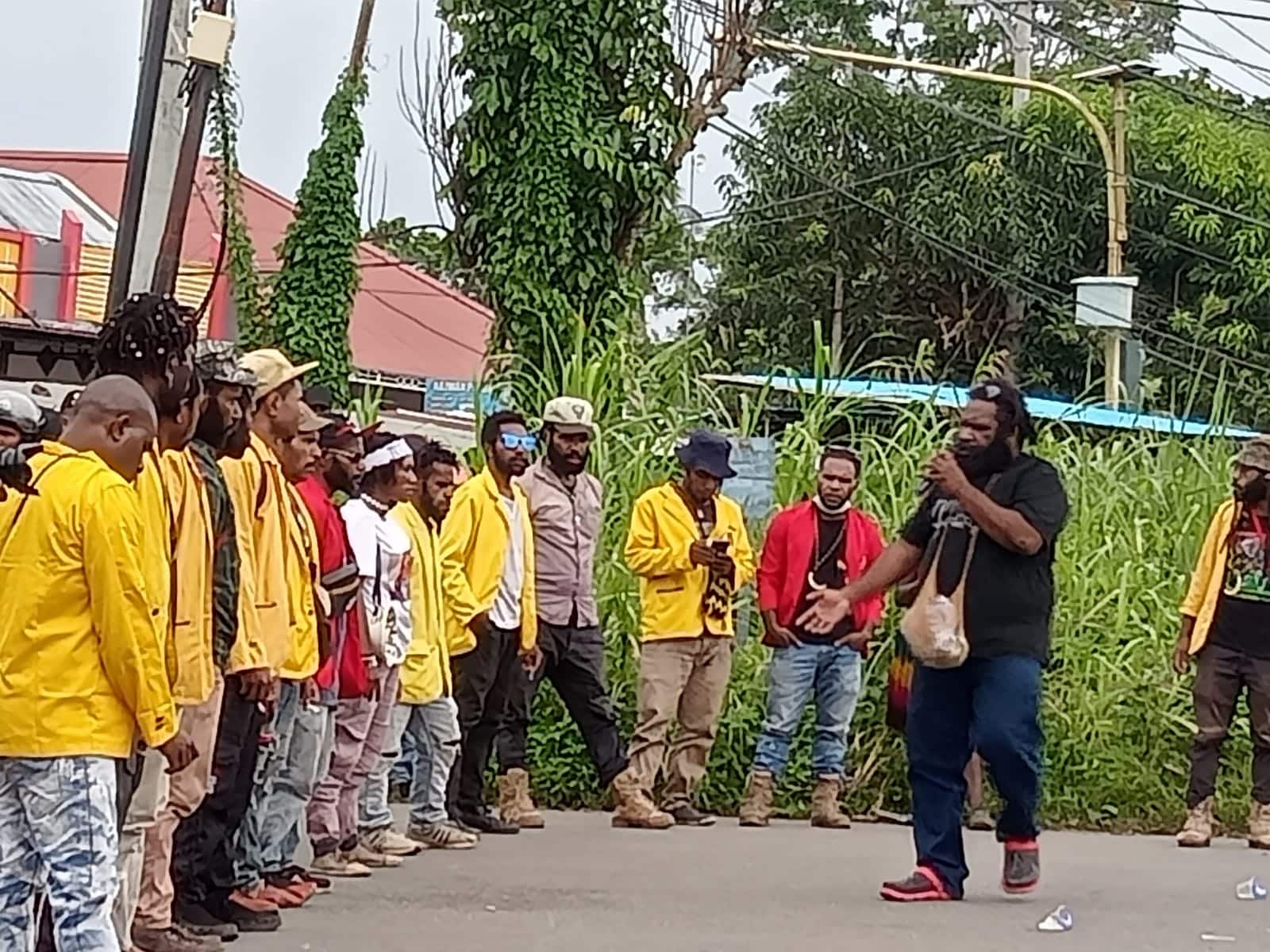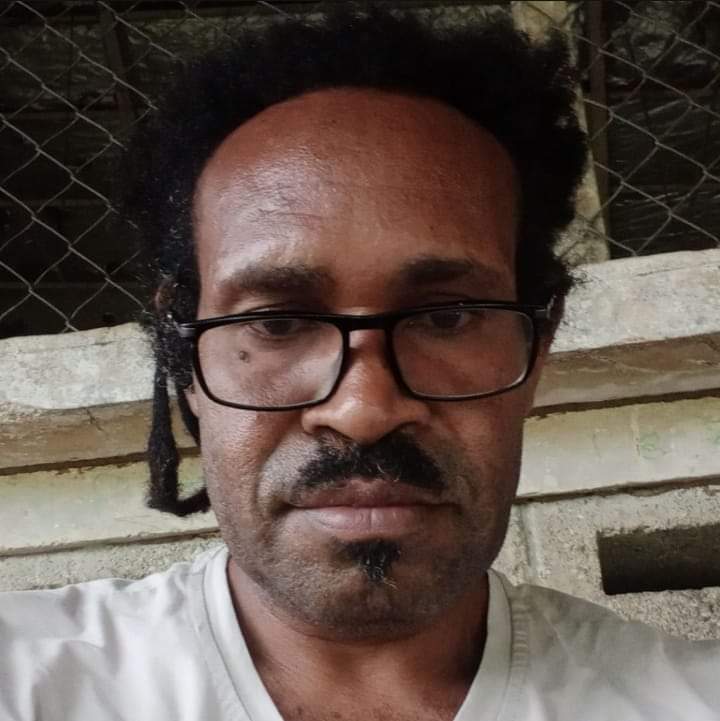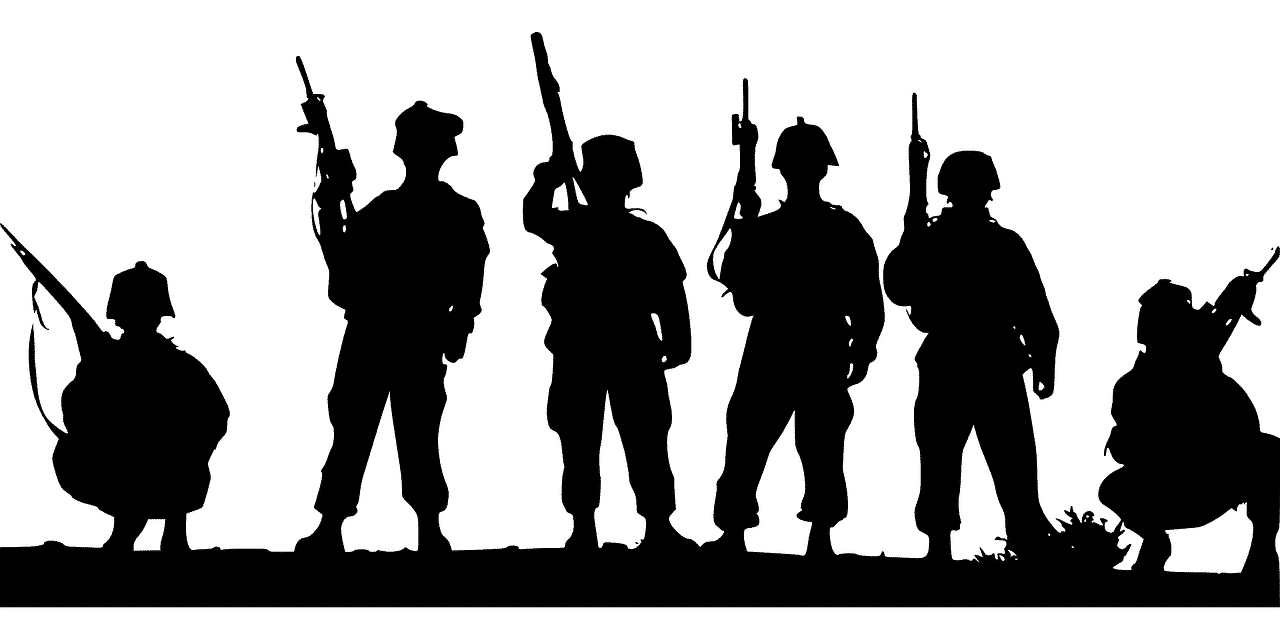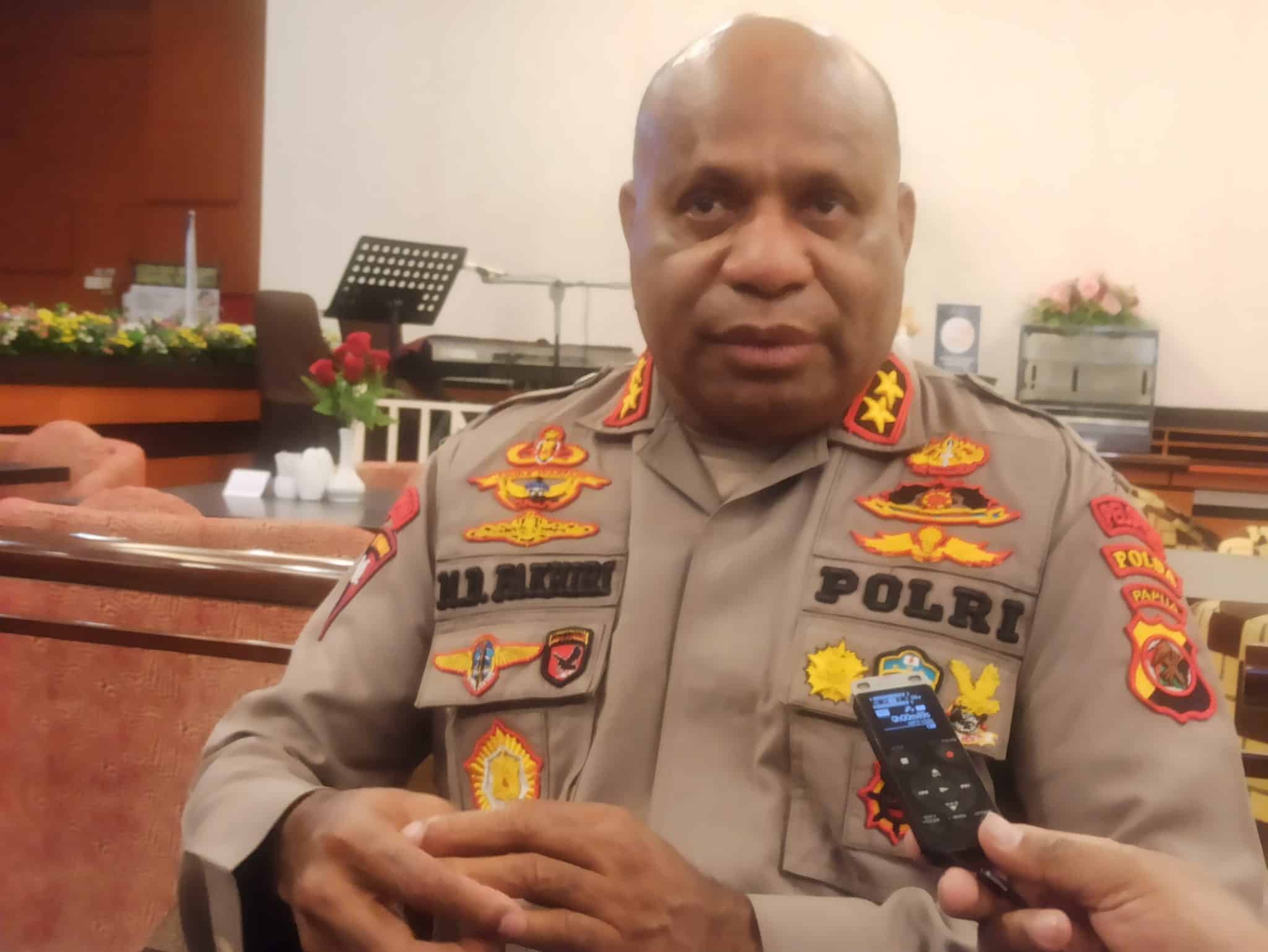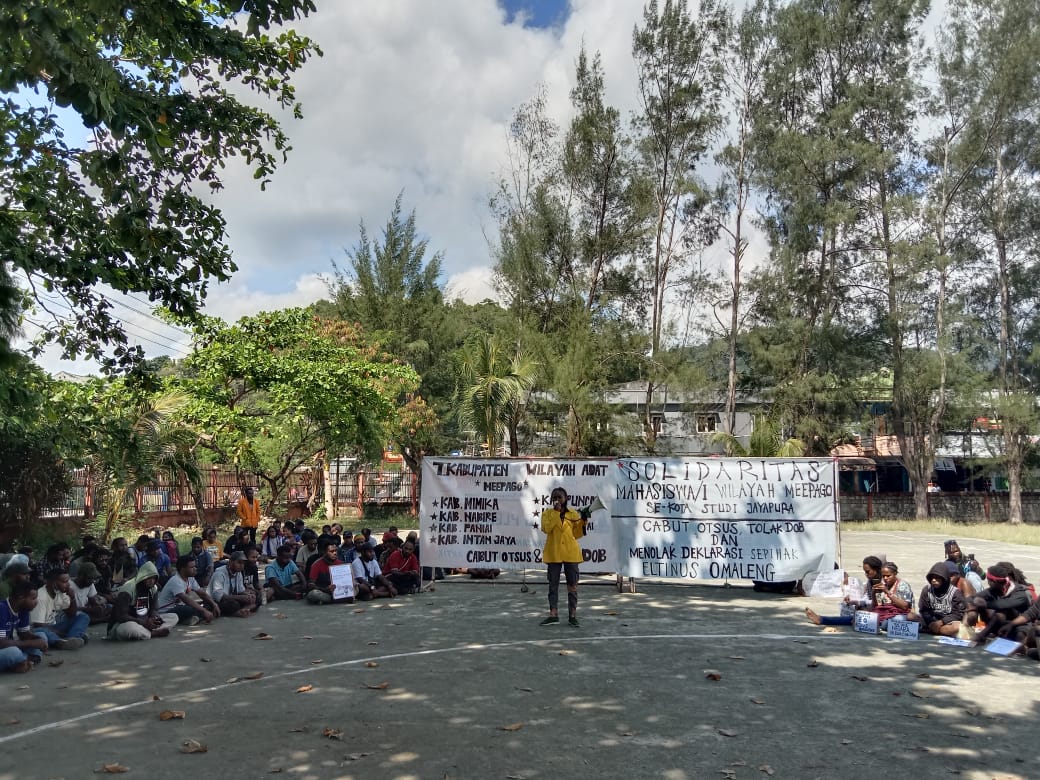Manokwari, Jubi – Filep Wamafma, a lawmaker of the Regional Representatives Council from West Papua, regrets the increasingly closed democratic space in Papua, as seen by police action blocking protesters who rallied in various cities in Papua and West Papua provinces on Tuesday, May 10, 2022.
The people on Tuesday protested against Papua’s Special Autonomy Law (Otsus) and the expansion of Papua. In Jayapura City, the protest was dispersed by the police before the protesters could convey their aspirations to the Papua Legislative Council. In Manokwari, the capital of West Papua Province, protesters were also intercepted by the police, thus failing to enter the office of the West Papua Legislative Council. However, the protest in Manokwari went peacefully, and the participants disbanded after protesting for 6 hours.
Filep Wamafma regretted the steps taken by the police to block the mass. He assessed that the democracy in Papua was completely repressed during the administration of President Joko Widodo (Jokowi). “We see complete regression of democracy under President Joko Widodo’s regime. It was better in the era of President SBY [Susilo Bambang Yudhoyono]. SBY was more inclined to maintain human values and democracy in Papua properly,” Wamafma said when contacted by Jubi via WhatsApp on Tuesday.
According to Wamafma, the Jokowi regime often uses the police and the army as tools of power. Wamafma even said that the way the state has been using the police to deal with protests reversed democracy in Indonesia.
Wamafma wondered why the central government continued to ignore the aspirations of the Papuan people. “Until now, we have been seeing the government putting aside the aspirations of Indigenous Papuans, using authoritarian means and state power while ignoring regional aspirations,” he said.
He further said that neglecting regional aspirations was a very serious problem because it put Indonesia back in the New Order era. “This is serious, the central government keeps crafting policies using New Order methods,” he said.
He regretted that civilians became victims only because they wanted to express their opinion in public. “As a lawmaker, I regret that the political dynamics in the regions are resolved by means of security forces. I think democracy in Papua is dead,” he said.
Previously, Manokwari Police chief Adj. Sr. Comr. Parisian Herman Gultom said the protest by Papuan students and people in Manokwari went peacefully and the protesters managed to express their opinions as well. However, Gultom admitted that his party forbade the students to perform a long march.
“Because of security considerations, we do not allow the masses to conduct long marches,” Gultom said.
Meanwhile, In Jayapura City, Jayapura Police chief Sr. Comr. Gustav Urbinas admitted his party indeed dispersed protesters on Tuesday because there was no guarantee that the protest would remain peaceful. Urbinas said his party was waiting for the person in charge of the protest to explain their purpose but no one came to the police station.
“They only left a letter. Therefore, to reduce the risk of clashes, I took decisive steps to block mass mobilization in Jayapura City,” Urbinas said.
In fact, in Indonesia, protesters are not obliged to seek permission from the authority to take to the streets. They are only required to notify the police about their rally. (*)



